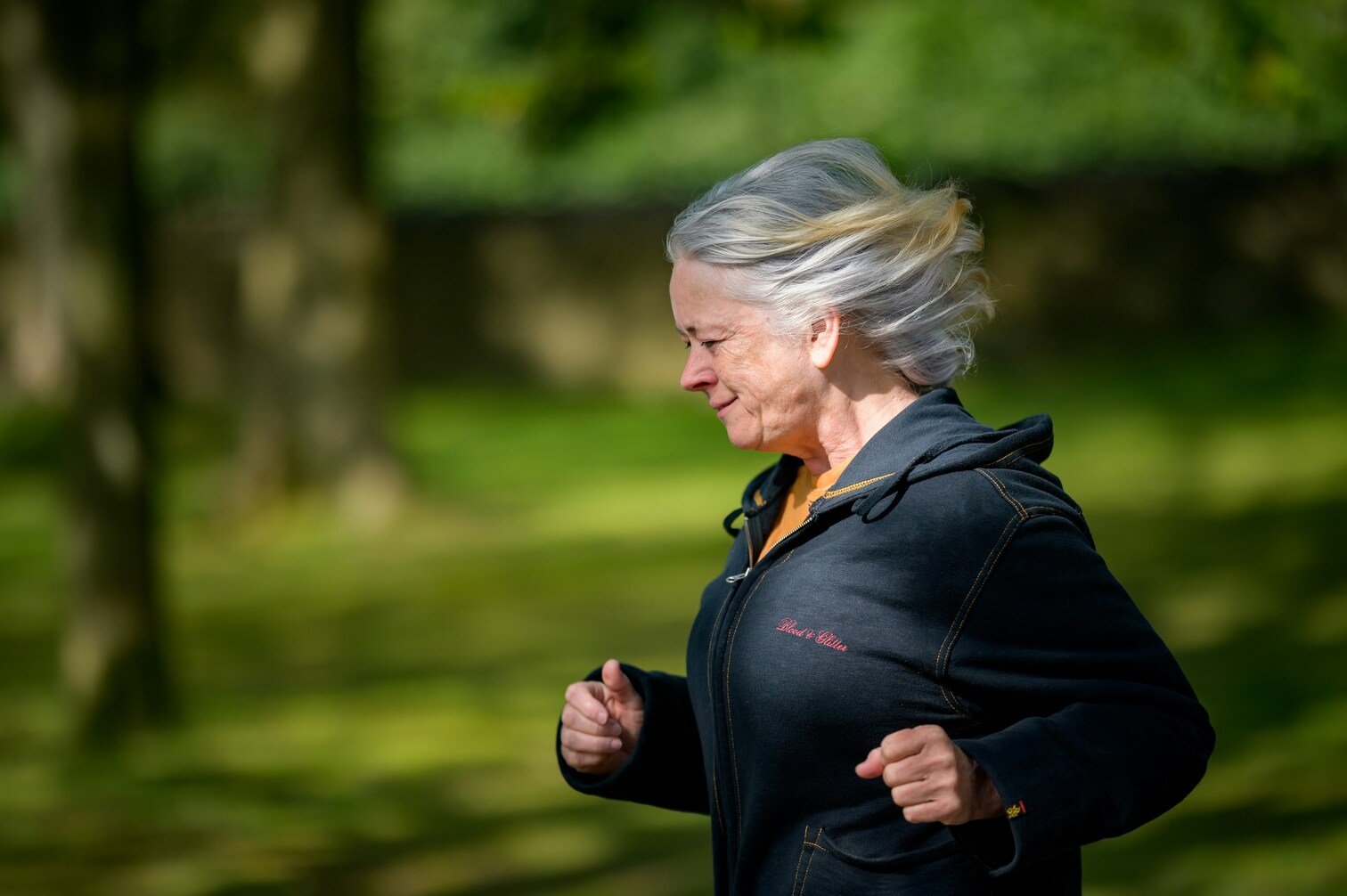The statutes read: "to promote and increase the effectiveness of actions to combat poverty and social exclusion, giving them innovative expressions and actions in this field, giving individuals a voice, restoring their capacity for initiative and promoting their participation in the development of these actions."
There have been many initiatives promoted by EAPN Portugal over 30 years of work in the field of combating poverty and social exclusion and strengthening the participation of all players, both at national and European level. EAPN Portugal has always understood that it could only be a spokesperson for citizens if, together with them, it drew up lines of action based on diagnoses drawn up by the citizens themselves. Our role must be based on close dialogue with those who experience these realities. Otherwise, we'll always be talking about what we don't know, what we don't feel and what we don't share.
We therefore advocate that the participation of citizens in situations of social vulnerability be incorporated into the different initiatives promoted by the organisation. We know that this path, although difficult to tread, is the one that bears the best fruit, because it is fruit born of respect for others, solidarity, knowledge and so on.
It is an important process because the participation of the poorest and most excluded citizens in the definition of measures and actions aimed at combating their social and economic situation, and subsequently in their implementation, is their right and guarantees that their voice is heard and that their real interests are safeguarded. It is also important because this participation guarantees the mobilisation of those who are most interested in the measures and actions being successful and because it corresponds to the exercise of active citizenship, which translates into an affirmation on the part of these citizens of their desire to change their situation.
Participation is a long process, built up step by step.
Participation is a long process, built up step by step. But when faced with difficulties, fear, doubt and uncertainty, it's necessary to stop and "look back" at the path we've travelled so far. That's why it's necessary to briefly raise the questions that are currently being asked, but also to give an account of the journey that has been made so far, as well as the lessons learnt.
When we talk about participation, we have to bear in mind that we are dealing with a complex and multi-purpose concept, due to the various meanings that the word acquires depending on the different contexts, but also, and above all, depending on the objectives and action to which it refers. On the other hand, the concept itself has several dimensions that must be taken into account in its very definition, such as social, political, cultural and also economic and financial dimensions, which is largely the reason for its polysemic nature.
Despite the plurality of meanings that the word can acquire, in this reflection we will not emphasise the most common ways in which the concept is used in our daily lives, which refers to attitudes or actions isolated in space and time (for example: taking part in the electoral vote, participating by paying membership fees, etc.), but rather its more dynamic dimension, based on the assumption that it is fundamentally a process under construction. Participation can be a process through which people, groups and territories (re)appropriate their resources, their identity, intervene in social, political and cultural life and make their voices heard more forcefully in decision-making bodies (1).
Participation is a process that involves a decision to be part of something.
Participation is a process that involves a decision to be part of something. If someone wants to be the "whole", you can't talk about participation. We can only talk about participation when we share, divide, distribute among several, when we pursue something in common, be it material goods, an idea, a project, among others.
Participation is a value that is part of EAPN Portugal's actions and that is materialised in its networking. We believe that participation is the way forward, the principle that should be adopted to reduce inequalities and combat poverty and social exclusion, promoting the exercise of active citizenship through the sharing of experiences and knowledge, acting together towards a common goal. We also argue that participatory processes not only provide moments of listening and dialogue with the actors who find themselves in this situation, but also allow for better adaptation of measures and greater awareness and co-responsibility in their process of inclusion.
EAPN Portugal has been promoting citizenship and the participation of people who experience or have experienced poverty and/or social exclusion through citizens' movements, both at district level - Local Citizens' Councils - and at national level - National Citizens' Council - as well as at European level. The National Council, as well as the respective Local Councils, are the result of work that EAPN Portugal has been carrying out since 2002, when it first consulted, in a participatory manner, citizens who were receiving the then Guaranteed Minimum Income. Since 2009, this work has been a priority for the institution in the fulfilment of its mission.
The Local Councils are made up of citizens who have experienced or live in a situation of social disadvantage, who identify with EAPN Portugal's objectives and who wish to make a voluntary contribution to the fight against poverty and social exclusion. A representative from each Local Council participates in the National Council and is appointed by the members of that Council.
In 2015, EAPN Portugal amended its statutes to include all members of local citizens' councils as inherent members of the organisation. This change marks a new step in promoting participation in the internal life of the organisation, particularly in its governance structure. At the moment, one member from each of the Local Councils sits on the General Council Board at the District Centre level, along with the collective members and individual members. In some places, such as Évora, the member of the Local Council chairs the Board.
The activities carried out with the Local and National Councils are varied. We would particularly highlight the National Forum to Combat Poverty and Social Exclusion, which has been held annually since 2009 with the aim of promoting nationwide reflection and sharing by people who experience social vulnerability, based on building a society that respects and keeps human rights in mind. We would highlight the participation at European level in the European Meeting of People Experiencing Poverty since 2001, as moments and spaces for participation on a broader scale, for sharing, exchanging and presenting measures that influence the European agenda in the fight against poverty and social exclusion. But we can also highlight Campaigns, Capacity Building and Awareness Raising Sessions; projects and various policy documents.
EAPN Portugal has endeavoured to demonstrate that citizen participation is possible and essential in the fight against poverty. Gradually, EAPN Portugal aims to create the conditions for organised and effective participation in the near future and, in the medium term, for the existence of structures and platforms for the participation of citizens experiencing poverty and/or social exclusion in the definition and implementation of social policies and measures. Internally, we also want these citizens to play an increasingly significant role in decision-making processes and strategic guidance.
We face several challenges, the biggest of which is that we still have more than 2 million people living in poverty. Ignoring, or relegating to second place (as has been done), the role that these people can play in finding solutions, in building new projects to combat this scourge is a mistake that we must overcome. Nor can we ignore the role that civil society organisations such as ours can play in mobilising these citizens to participate, but for this to happen they also need support and training.
The main lessons learnt are summarised below:
- Participation must be guaranteed over the long term in order to ensure its follow-up and continuity, thus allowing citizens to "grow" in this area. Participation requires time, a driving force and a constant presence.
- The group must have "existence", i.e. its members must have a shared agenda and/or values to create the identity of the "we", as these create a sense of belonging to the group, a feeling of being part of and an effective member of the group.
- Citizens experiencing poverty and social exclusion must be listened to and taken seriously, and their skills must be valued. They must also be guaranteed the means and conditions to participate, namely by investing in the provision of information through "training" moments, information/awareness-raising actions, among others.
- The group must be visible and recognised. It's important to bear in mind visibility (communication to the outside world), which is also important for explaining what you're doing to other players and the rest of society.
- Participation has different phases and levels. The results are not always visible in the short term, nor are they uniform for everyone, nor in all aspects. Each person has their own time. Each person has their own history, language, culture and values. Heterogeneity cannot be ignored when we are promoting participatory processes. With regard to the usefulness of participation, not everyone is convinced to the same degree and intensity to do so and not everyone will have the same conditions.
- It is necessary to know how to listen, to be attentive, to give time and space for the expression of the needs and aspirations of people experiencing poverty and social exclusion.
- The people/institutions that deal with them must also make an effort to promote participation as part of the process of change.
- The reasons for non-participation give us key guidelines for understanding the world of non-participation, what doesn't work, but which is often not obvious.
- Participation can't be improvised, but a set of conditions for participation must be met, and joint moments (e.g. meetings, action planning, etc.) must also be valued.
- Complicity between the various members and collaborators of the organisation becomes a key element for the cohesion of the groups and the work carried out in this area, for the sharing of experiences, the involvement and involvement of people, the circulation of information and the feeling of belonging.
- Citizens in situations of poverty and/or social exclusion actively participate when spaces open up and they feel heard, when they do what they set out to do, when they see the results and when they see themselves as subjects and citizens.
We therefore believe that EAPN Portugal needs to continue the work it has done so far, ensuring that the most vulnerable groups have access to information, have the chance to make decisions and develop their own capacities and potential. We must know how to listen, respect their rhythms and take their expectations into account in order to continue participation with them.
"In the 'garden of participation' there is a field full of flowers, in which we play a score that is inspired by the particular to respond to the global, giving life to people who find themselves in a situation of poverty and social exclusion". (2)
Bibliography:
In Statutes of EAPN Portugal, art.2, no. 1
Jordi Estivil and others, Small Experiences. Great Hopes!, European Anti-Poverty Network/Portugal, Porto, 2006, p. 35
Veiga, Fátima; Cruz, Paula (2017). Together for a different society. The journey of the Local Citizens' Councils in EAPN Portugal. Porto: EAPN Portugal.
[1] In CIARIS : http://www.ciaris.org/community/library/show/152.
[2] Jordi Estivil and others, Small Experiences. Great Hopes!, European Anti-Poverty Network/Portugal, Porto, 2006, p. 35



